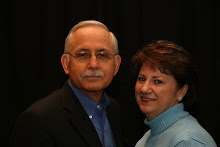Researchers from the University of California at San Diego discovered a correlative relationship between higher rates of lung cancer and less exposure to the sun.
Cancer and vitamin DThe study compared data from national and international databases and compared the lung cancer rates in 111 countries. It found a correlation with smoking, lung cancer and significant lower UVB exposure. Although the current study focused only on lung cancer, research conducted on other cancers have pointed to the fact that most cancer cases are seen in subjects living far from the equator, suggesting that lower levels of vitamin D also account for a high risk of colon and other cancers.
Traditionally, vitamin D was thought to be mostly responsible for bone health and was the medical answer to the rickets phenomenon decades ago. More recent findings have shown that the body has cells and tissues which contain vitamin D receptors necessary for its proper functioning, spurring a lot of interest in the potential of what it can do. The fact that it has just been discovered to prevent a spectrum of chronic diseases, cancer included, has stimulated a debate about whether it is the answer to the cancer problem that has plagued the world.
As early as 2001, the British Journal of Cancer featured a study revealing that cooked and raw fish lowered the risk of lung adenocarcinoma among the Japanese. In a more recent study of Norwegian men and women, consumption of cod liver oil was also found to protect against lung cancer. Fish and cod liver are some of the richest food sources of vitamin D.
What is vitamin D?
Curiously, vitamin D is not a vitamin but a hormone that, as earlier mentioned, affects a lot of physiological processes.The body needs sufficient sun exposure to produce vitamin D . It can even be stored in the skin until the time when body needs it again. Strangely, it is impossible to get an overdose from sun exposure since the body has a mechanism that controls the amount it needs.
Getting vitamin D from dietary sources may not be enough, as there are not many foods naturally containing vitamin D. This leaves supplementation, which can be an option for those who may not get enough sun exposure.
The recommended intake by the US government is set at 600 IU for children and adults until 70 years of age. Adults above 70 are recommended to take 800 IU a day. A recent study appearing in the Anticancer Research Journal suggests that to be able to take advantage of cancer protection benefits, higher levels are required, or as much as 4,000 to 8,000 IU for adults per day.
Vitamin D controls cancer cells
The likely explanation for this is that vitamin D locally controls genes that help keep cancer at bay by keeping cellular proliferation in check. It has also been suggested that it can induce cell death and regeneration, reducing the potential for malignant cells to survive. Once it has done its job, it initiates its own destruction to guarantee that it does not enter circulation to influence calcium metabolism.Andreas Moritz, a practitioner of alternative medicine and author of "Cancer is not Disease - It's a Survival Mechanism," describes cancer as the body's healing attempt when all other measures of self-preservation have failed. According to him, the reason the body allows some of its cells to become abnormal is because it attempts to heal itself. Thus, blocking its healing attempt can destroy the body while supporting it in its healing mechanisms can save it.
If Moritz is correct, how we approach cancer may hold a vital clue to its solution. The present treatment of cancer involves procedures such as chemotherapy, invasive procedure and use of pharmaceuticals. This narrow-minded focus on finding a cure practically ignores other options which have been around far longer than conventional medicine - such as the concept of a nutritional cure.
A look at the current trend in cancer treatments has seen such debilitating side effects in a patient's quality of life that it may appear to hasten a patient's decline rather improve his or her health. A patient may as well not undergo chemotherapy, as his chances of surviving without the procedure may well be higher than when he is undergoing treatment.
Nutritional care, on the other hand, seeks to work with the body's needs by providing the necessary vitamins and minerals needed to properly function. It is actually the natural way of keeping the body in balance and the best way to prevent diseases. In the event that the body's system is compromised due to illness, the body's immune system may be strengthened by taking food that naturally boost its immune system.
The alternative option, in the face of emerging research, has supported the idea of nutritional care - an empowered approach to disease that has seen many succumb to the influence of conventional medicine instead. Perhaps, it can now be said that to properly beat cancer, a needle may no longer suffice, and all that it may take is the enjoyment of life with good vitamin D-rich food and a lot of play under the sun.
